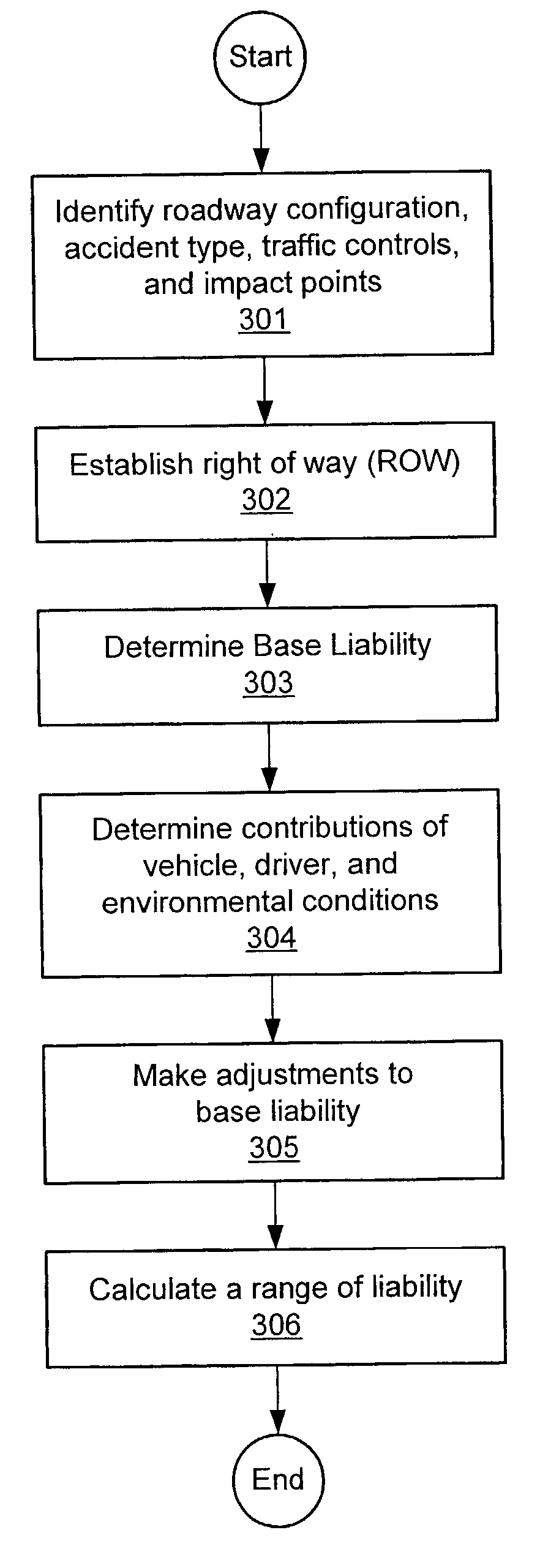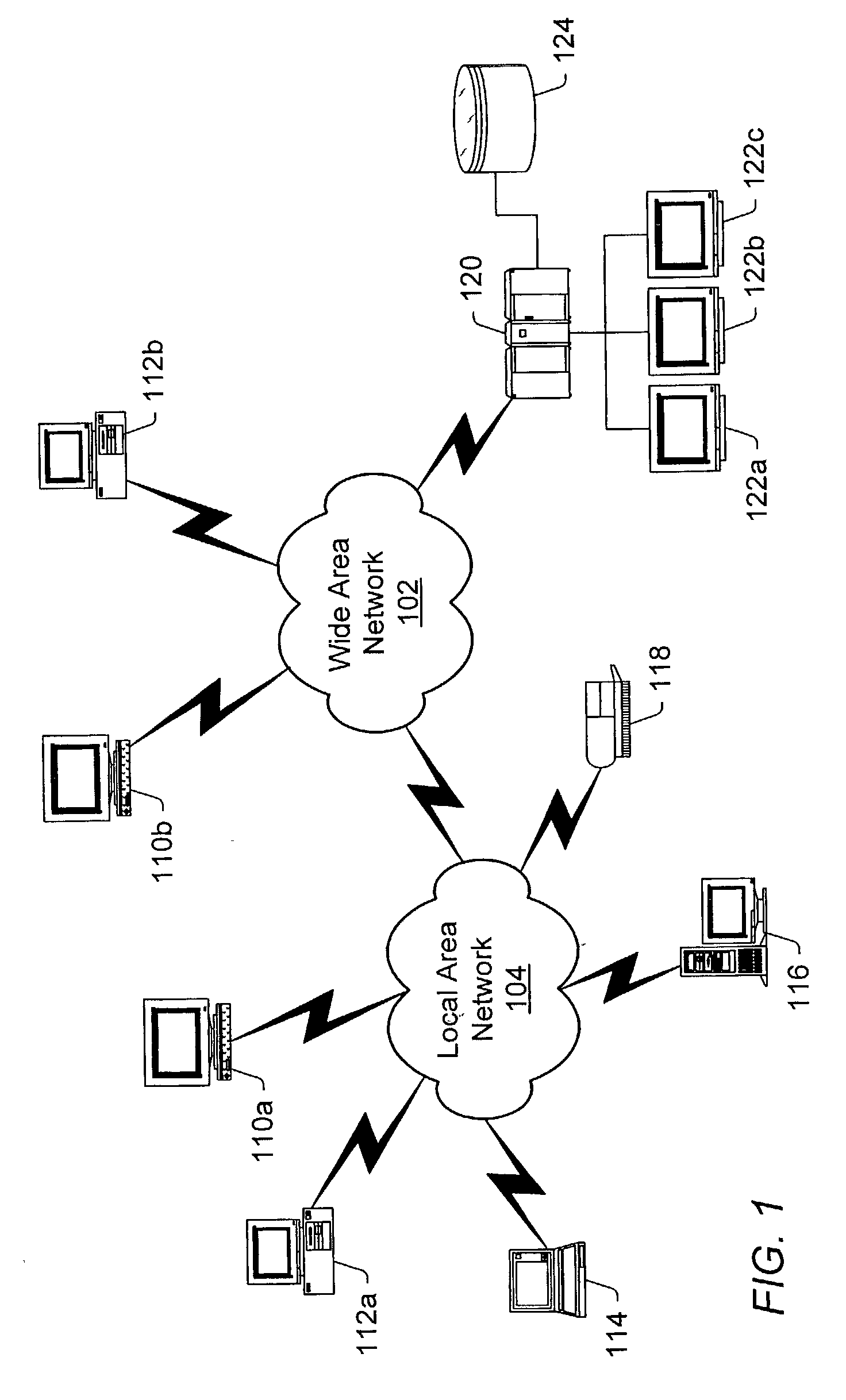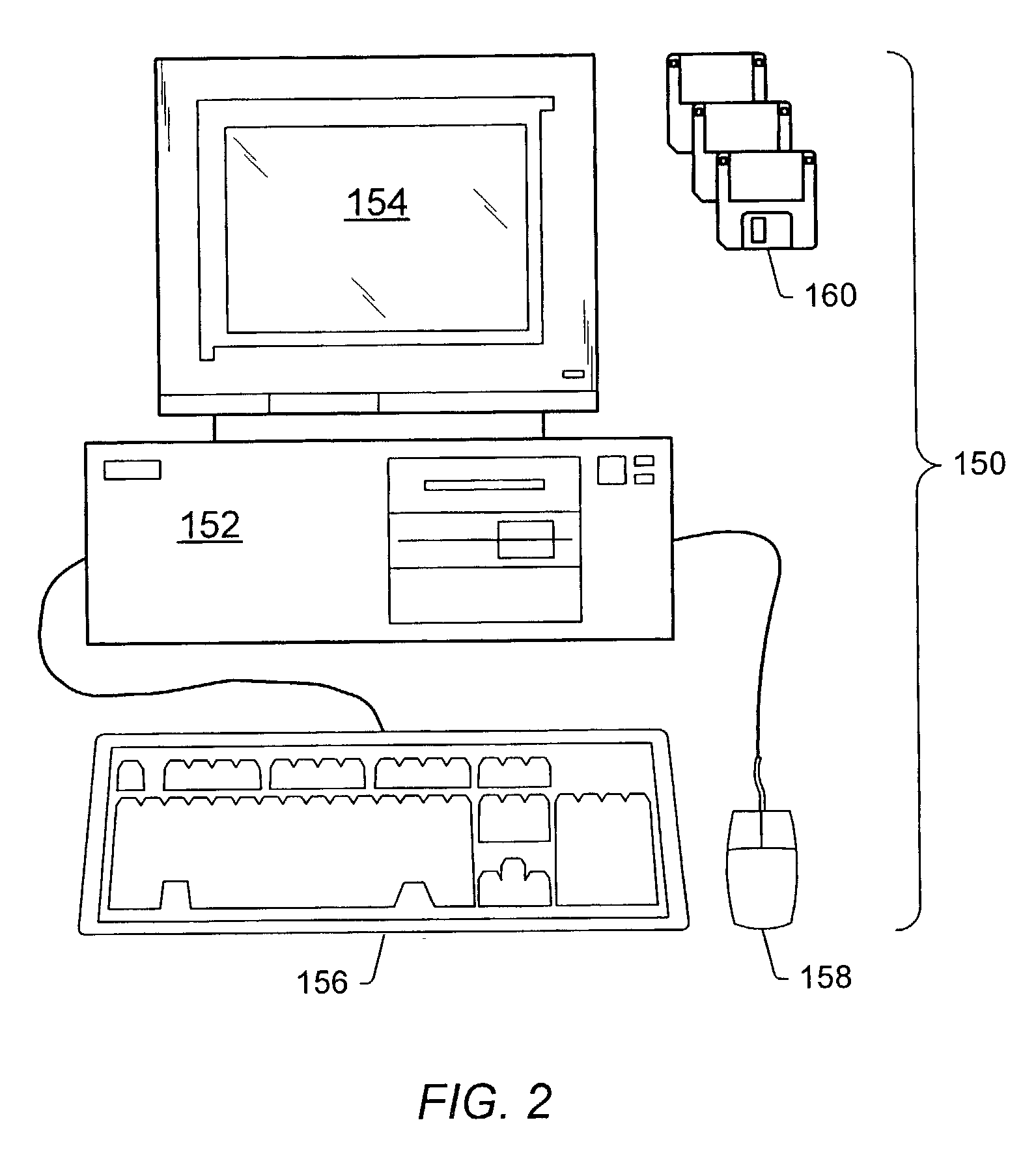Computerized method and system for estimating an effect on liability based on the stopping distance of vehicles
a computerized method and system technology, applied in the field of estimating liability in an accident, can solve the problems of large case load, insufficient time to effectively assess liability, and large liability assessment tim
- Summary
- Abstract
- Description
- Claims
- Application Information
AI Technical Summary
Benefits of technology
Problems solved by technology
Method used
Image
Examples
first embodiment
[0261] FIG. 20a is a flow chart for estimating the effect of a factor that accounts for the contribution of following too closely to a motor vehicle accident according to a As used herein, the term "following too closely" generally refers to an action by the driver of a rear vehicle in which the driver of the rear vehicle fails to remain a safe distance from a vehicle in front of them before the accident, thus contributing to the accident. In some embodiments, the following too closely factor may be applied only to the tortfeasor and may only be applied for accident type 1.
[0262] As shown by decision point 2001 in FIG. 20a, if the accident type was not type 1 or the tortfeasor was not behind or following the other party, then the factor may not be applicable as shown by step 2003. If the accident type was type 1 and the tortfeasor was following the other party, then the next step 2005 may be to gather information regarding the accident. The information may include the number of veh...
second embodiment
[0264] FIG. 20b is a flow chart for estimating the effect of a factor that accounts for the contribution of following too closely to a motor vehicle accident according to a As shown by decision point 2025 in FIG. 20b, if the accident type was not type 1 or the tortfeasor was not behind or following the other party, then the factor may not be applicable as shown by step 2027. If the accident type was type 1 and the tortfeasor was following the other party, then the next step 2029 may be to determine if the actual following distance was less than a recommended safe following distance according to the table in FIG. 20c.
[0265] FIG. 20c depicts a table for determining a recommended safe following distance. If the driver of the rear vehicle was traveling at less than or equal to 45 mile per hour (mph), then row 2050 may be used to determine the recommended safe following distance. If the driver of the rear vehicle was traveling at greater than 45 mph, then row 2052 may be used to determi...
PUM
 Login to View More
Login to View More Abstract
Description
Claims
Application Information
 Login to View More
Login to View More - R&D
- Intellectual Property
- Life Sciences
- Materials
- Tech Scout
- Unparalleled Data Quality
- Higher Quality Content
- 60% Fewer Hallucinations
Browse by: Latest US Patents, China's latest patents, Technical Efficacy Thesaurus, Application Domain, Technology Topic, Popular Technical Reports.
© 2025 PatSnap. All rights reserved.Legal|Privacy policy|Modern Slavery Act Transparency Statement|Sitemap|About US| Contact US: help@patsnap.com



